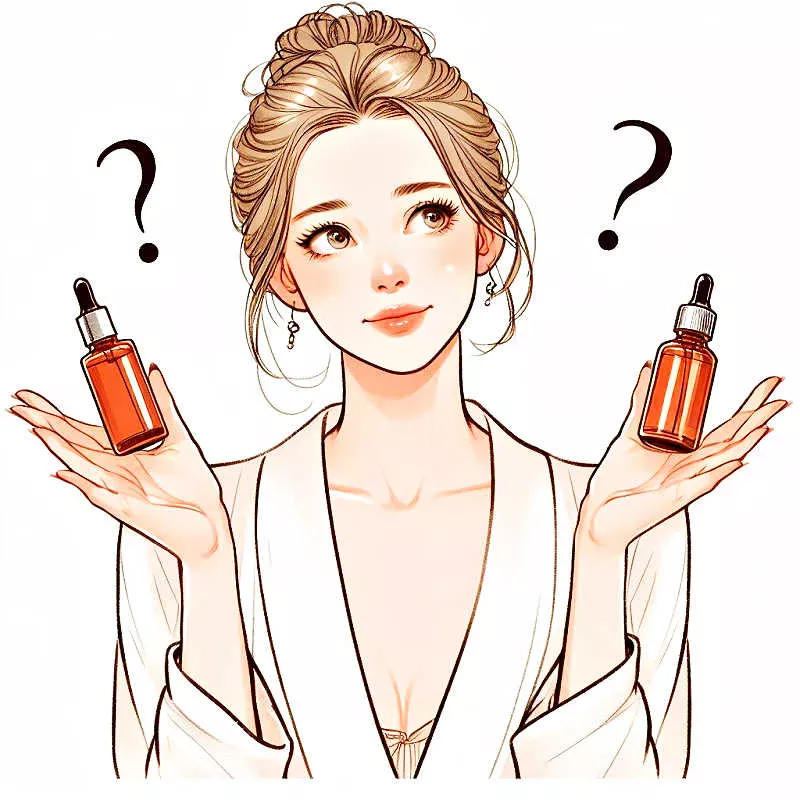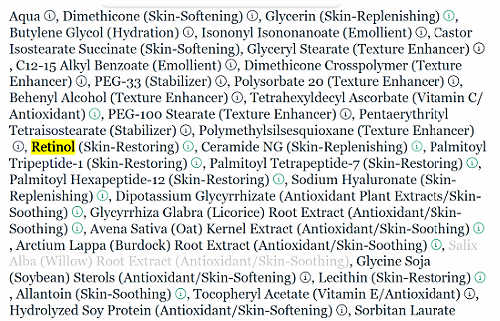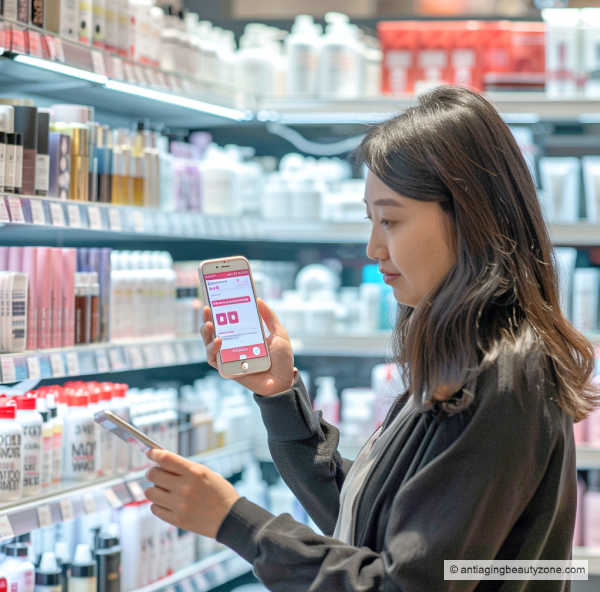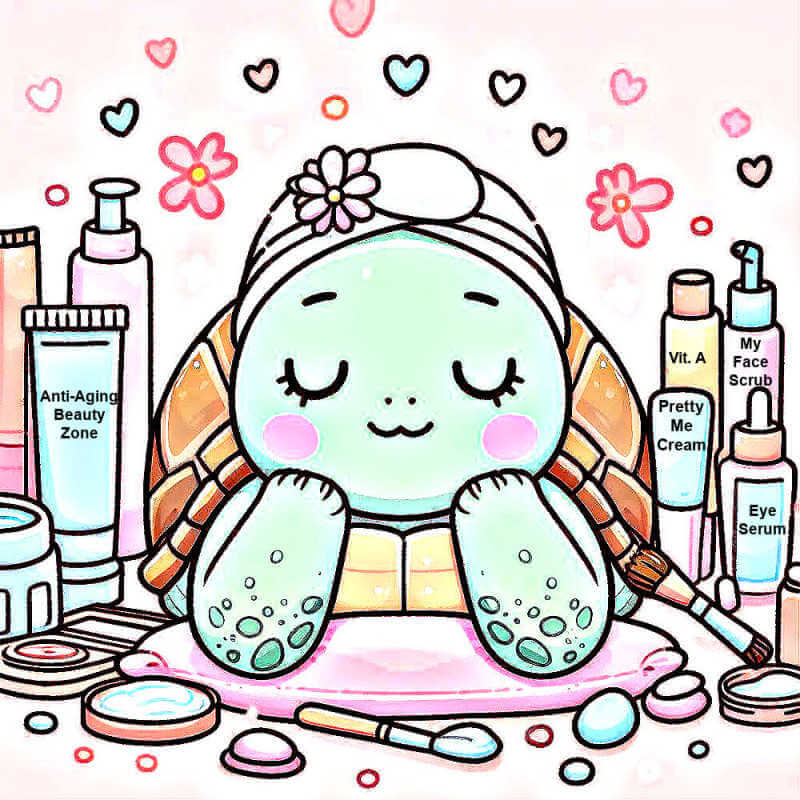- Home
- Popular Ingredients
Anti-Aging Cosmetics Guide: What Works and Why
by: Linda Robison / Facial Fitness Specialist
Navigating the world of anti-aging cosmetics can be overwhelming. With countless products promising miracles, it's hard to know what actually works.
Here's the truth: only a handful of ingredients have solid scientific evidence backing their wrinkle-fighting claims.

This anti-aging cosmetics guide will help you understand which beauty product ingredients work and why they matter for healthy looking skin.
What Makes an Ingredient Anti-Aging?
It's important to understand that these ingredients aren't overnight miracle workers. They require consistent use and patience before you'll see noticeable results. But when used regularly and correctly, the effects can be truly impressive.
Which ingredients works best in anti-aging products?
We've researched insights from board-certified dermatologists and reviewed recent studies to identify the most effective anti-aging ingredients available.
From well-established classics to exciting newcomers, we'll explore what really helps keep your skin looking youthful and radiant.
We'll break down:
- The purpose and action of the top anti-aging ingredients in cosmetic products.
- How to get the best bang for your buck.
- Which beauty product ingredients to avoid.
Anti-aging cosmetic active ingredient list:
Here is a list of the most popular active anti-aging ingredients that can help your skin look better.
For more detailed information, you can check them out at the INCI Decoder
Exfoliants and skin renewers:
Alpha hydroxy acids:
AHAs, which include glycolic acid (from sugarcane), lactic acid (from milk), citric acid (from citrus fruits), malic acid (from apples), and tartaric acid (from grapes), offer unique benefits for skin care.
Glycolic acid, known for its small molecular size, deeply penetrates the skin, while lactic acid provides effective exfoliation and hydration, as noted by Dr. Nishita Ranka.
These AHAs improve skin texture, tone, firmness, elasticity, and reduce signs of aging such as fine lines, wrinkles, hyperpigmentation, and age spots, all while promoting collagen production.
Retinol
This is ranked as the most effective over-the-counter anti-aging ingredient—right after sunscreen!
Dermatologists agree that retinol boosts cell turnover and collagen production in both the outer and deeper skin layers. It's an affordable, research-backed solution available at your local drugstore.
Sensitive to retinols? Check out Natural Retinol Alternatives for equally impressive options.
P.S. Don't skip sunscreen! According to dermatologist Dr. Turegano, UV light cancels out all the benefits of your anti-aging products. (Source: Byrdie.com)
Bukachiol
Next up: Bakuchiol (buh-KOO-chee-ol) - is a gentle yet powerful anti-aging ingredient perfect for sensitive skin, rosacea, and expecting mothers. Like retinol, it helps reduce fine lines, wrinkles, and dark spots while boosting elasticity. "It works through the same receptors as retinol, making it a popular natural alternative," says Dr. Joshua Zeichner, director of cosmetic and clinical research in dermatology at Mount Sinai Hospital.
Collagen boosters:
Peptides
Peptides are small chains of amino acids, the building blocks of proteins. They help signal your skin to produce collagen, which helps improve firmness and reduce wrinkles.
Small studies suggest that women aged 40+ can see visible wrinkle reduction in just two weeks by using peptides. It’s an easy way to enhance your skincare routine and keep your skin looking its best.
Vitamin C
This strong antioxidant protects your skin from sun damage and free radicals, which can speed up aging. Plus, Vitamin C creams and serums are great at boosting collagen production, keeping your skin firm and smooth. If you're dealing with dark spots or uneven skin tone, Vitamin C can also help brighten up your complexion over time. It's a must-have for maintaining youthful and radiant skin.
Skin brighteners:
Kojic acid
Kojic acid, a natural compound found in some fungi or made during the fermentation of sake, has been praised for its skin benefits for a long time.
Not only does it work wonders for hyperpigmentation (also known as age spots, brown spots and dark spots), but it also boasts benefits for those seeking anti-aging skincare solutions.
Niacinamide (B3)
Niacinamide (Vitamin B3) boosts skin elasticity, evens tone, and reduces dullness. It enhances ceramide and fatty acid production, improving the skin's barrier to retain moisture and strengthen its structure. This helps smooth fine lines, calm redness, and soothe irritation—ideal for sensitive skin.
Adding niacinamide to your routine can lead to a brighter, smoother, and healthier-looking complexion.
Hydrators and moisturizers:
Ceramides
Ceramides are gaining popularity in anti-aging skincare products for their pivotal role in skin health. These lipid molecules, part of the sphingolipid family, form a vital component of the skin barrier. According to WebMD, by using ceramides based creams you can enhance skin firmness, boost hydration, and promote a more youthful appearance.
Polyglutamic Acid
Polyglutamic acid (PGA) derived from fermented soybeans, outperforms hyaluronic acid in moisturizing. It forms a protective film to lock in moisture, boost elasticity, and smooth fine lines. If you have dry skin, PGA should be in your routine!
Hyaluronic Acid
For those with dry skin, hyaluronic acid offers not only an instant hydration boost but also long-term skin benefits. It is highly regarded as a top anti-aging ingredient
Protectors and repair agents:
Coenzyme Q10
As we get older, our CoQ10 levels drop, leading to wrinkles, fine lines, and less elastic skin. Applying CoQ10 topically can boost these levels, making skin firmer and smoother. Its antioxidants also fight free radicals that harm collagen and elastin, making CoQ10 great for anti-aging skincare, keeping skin healthy against environmental damage.
Green Tea Extract
Green tea isn't just for sipping - it's a skincare superstar found in many skincare creams and cleansers! Rich in antioxidants (catechins), green tea combats free radicals that cause premature aging. Its anti-inflammatory properties also calm redness and irritation, promoting firmer, more youthful skin. No wonder it's a staple in anti-aging products!
So next time you spot green tea on a label, you'll know it's not just hype - it's backed by some serious skin-loving science.
Sunscreen
No, it's not glamours or exotic but sunscreen is the number one top anti-aging ingredient! Why? Because it's been proven that using a broad-spectrum sunscreen daily not only prevents further sun damage but also aids in reversing existing signs of aging!
Studies showed that after one year, all signs of sun-induced skin aging improved among participants. Texture, clarity, and pigmentation spots showed the most improvements. By the study's end, all participants exhibited clearer and smoother skin.
So, find one you like and stick with it! I like Color Science because it's light and gives my skin a nice sheen. Plus, it has a rating of PA++++, the highest in the industry.
Get the best bang for your buck!
Before splurging on that anti-aging wonder cream, check the label!
Cosmetic labels can be confusing with important sounding names that may not do anything at all. Or they maybe be full of ingredients harmful for your complexion.
Here's the trick: look for the "active" anti-aging ingredient.
Why? It's the superhero of anti-aging. The higher it is on the list, the stronger the product. In simple terms, more bang for your buck.
For instance, check out the ingredient list of this retinol skin repair serum by Paula's Choice 1% Retinol Cream.

See how retinol is closer to the top?
That means it contains a good amount of retinol, promising better results than products where it's lower down on the list. 😊
What to avoid in anti-aging products
While it’s exciting to focus on the ingredients that work, it’s just as important to know which ones to avoid. Some ingredients can be harmful, irritating, or simply ineffective.

Harmful ingredients to watch out for:
According to organizations such as the Environmental Working Group (EWG), Campaign for Safe Cosmetics, European Union (EU) Regulations, National Institutes of Health (NIH), and American Academy of Dermatology (AAD), when choosing beauty products, it's crucial to avoid harmful and toxic ingredients:
- Parabens: Linked to hormone disruption
- Phthalates: Potential reproductive toxins
- Sulfates: Harsh detergents that can strip natural oils
- Formaldehyde: Known as a carcinogen and skin irritant
- Synthetic Fragrances: Often contain undisclosed allergens
- Triclosan: Can disrupt hormone function and contribute to antibiotic resistance
Opt for products free from these dangerous ingredients to promote healthier and safer skincare routines.
What to do now?
Yes, it's overwhelming. You probably feel that you want or need to use all of them. Especially as we get older and find we're dealing with more and more anti-aging skin issues.
Well, surprisingly, it's not impossible to wind up using most of the anti-aging cosmetics discussed in the list above, since many products have dual actions and often contain multiple active ingredients.
And, in the course of a week (7 days), you could very possibly wind up using many of them through your normal combined skin care routines.
For example, at the very basic, most women over 40 follow a basic routine that includes the following:
- Sensitive skin face wash
- Super hydrating moisturizer
- Anti-aging night-time cream or serum
- Weekly exfoliator, peel, or facial
Don't have a basic skin care routine yet? Not sure where to start? Click here for simple and affordable at-home solutions for skin over 40.
Finally - be patient
Be Patient
If you're just starting to use anti-aging cosmetics, be patient.
Remember, just because certain cosmetic ingredients are clinically proven to help reduce the signs of aging - that does not guarantee that you'll see the results you're expecting.
No matter which anti-aging cosmetic product you choose, keep in mind that it could take 3-6 months to see improvements, such as a softer, smoother. or more hydrated appearance.
And, some people might exerprience temporary side-effects for the first few weeks.
Recommended:
Under Eye Creams - How to find one with the "right" ingredients for your needs.
About the Author:
Linda Robison is a Facial Fitness Specialist and the founder of Anti-Aging Beauty Zone. She shares expert insights on skincare, facial rejuvenation, and beauty treatments—blending traditional wisdom, personal experience, and science-backed research for both at-home and in-office solutions.
Before you go ....
Please tap on the💙in the bottom right corner if you found this page helpful.
FOLLOW ME FOR MORE TIPS:
SHARE OR SAVE FOR LATER:
Sources:
Am J Clin Dermatol. 2010;11(2):95-102.Photoaging: prevention and topical treatments.
J Cosmet Dermatol. 2008 Dec;7(4):259-62. Clinical tolerance and efficacy of capryloyl salicylic acid peel compared to a glycolic acid peel in subjects with fine lines/wrinkles and hyperpigmented skin.
J Cosmet Laser Ther. 2013 Mar 6. [Epub ahead of print]. The anti-wrinkle efficacy of Argireline.
J Cosmet Laser Ther. 2013 Apr 22. [Epub ahead of print]. The anti wrinkle efficacy of synthetic hexapeptide (Argireline) in Chinese Subjects.
Am J Clin Dermatol. 2013 Apr;14(2):147-53. The anti-wrinkle efficacy of argireline, a synthetic hexapeptide, in Chinese subjects: a randomized, placebo-controlled study.
Acta Pol Pharm. 2012 Nov-Dec;69(6):1303-6. Effect of Gly-Gly-His, Gly-His-Lys and their copper complexes on TNF-alpha-dependent IL-6 secretion in normal human dermal fibroblasts.
J Pept Sci. 2012 Nov;18(11):685-90. doi: 10.1002/psc.2455. Epub 2012 Sep 28.Stem cell recovering effect of copper-free GHK in skin.
Mol Pharm. 2013 Mar 4;10(3):1063-9. Collagen stimulating effect of peptide amphiphile C16-KTTKS on human fibroblasts.
Clin Cosmet Investig Dermatol. 2013;6:43-9. doi: 10.2147/CCID.S39370. Epub 2013 Feb 12. Topical effects of N-acetyl-L-hydroxyproline on ceramide synthesis and alleviation of pruritus.
Int J Toxicol. 2005;24 Suppl 2:51-111. Final report of the safety assessment of L-Ascorbic Acid, Calcium Ascorbate, Magnesium Ascorbate, Magnesium Ascorbyl Phosphate, Sodium Ascorbate, and Sodium Ascorbyl Phosphate as used in cosmetics.
Mol Pharm. 2013 Mar 4;10(3):1063-9. doi: 10.1021/mp300549d. Epub 2013 Feb 4. Collagen stimulating effect of peptide amphiphile C16-KTTKS on human fibroblasts.
http://medceuticalsskincare.com/media/pdf/Matrixyl-3000.pdf
J Drugs Dermatol. 2013 May;12(5):533-40.Treatment of facial photodamage using a novel retinol formulation.
Arch Dermatol. 2007 May;143(5):606-12.Improvement of naturally aged skin with vitamin A (retinol).

